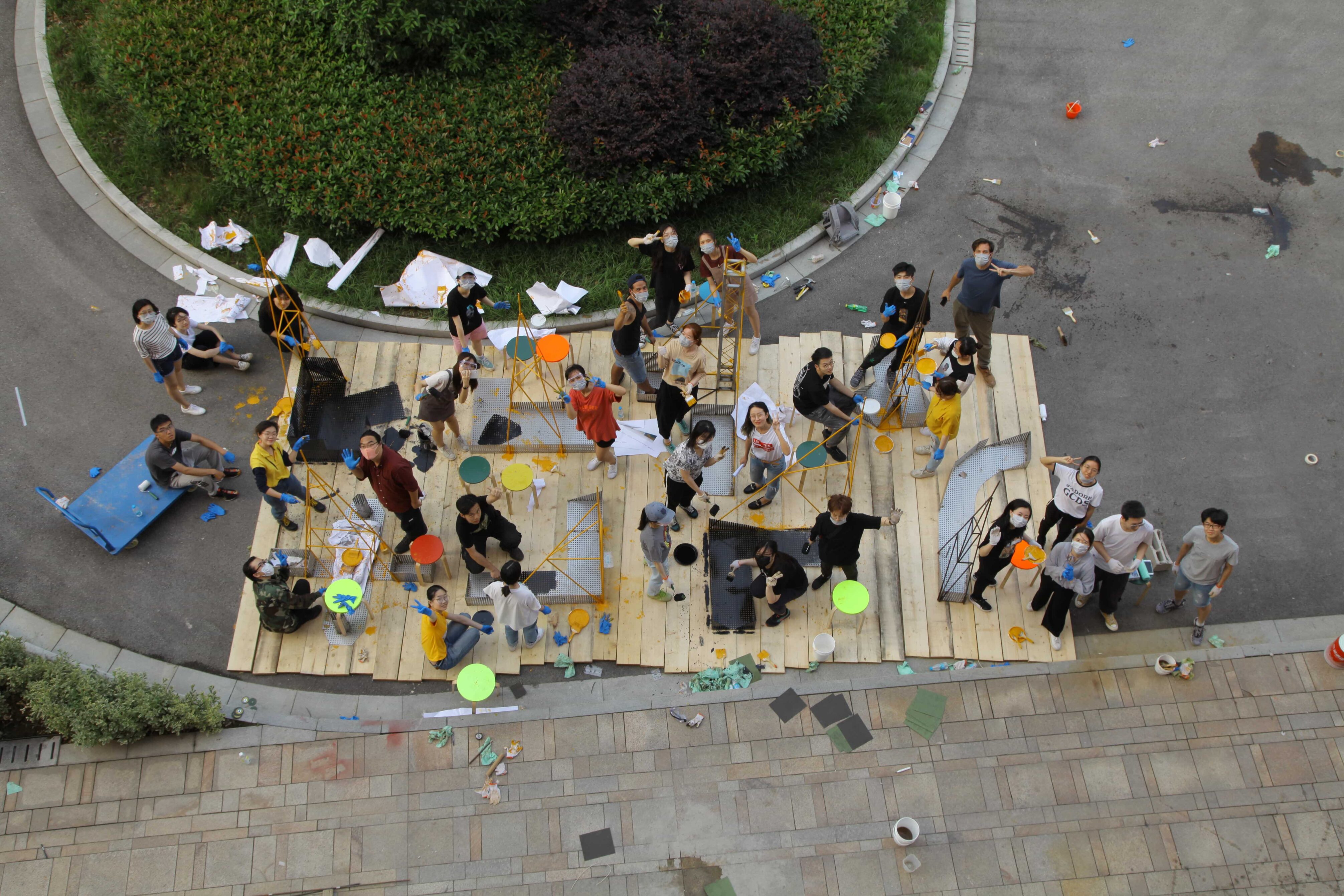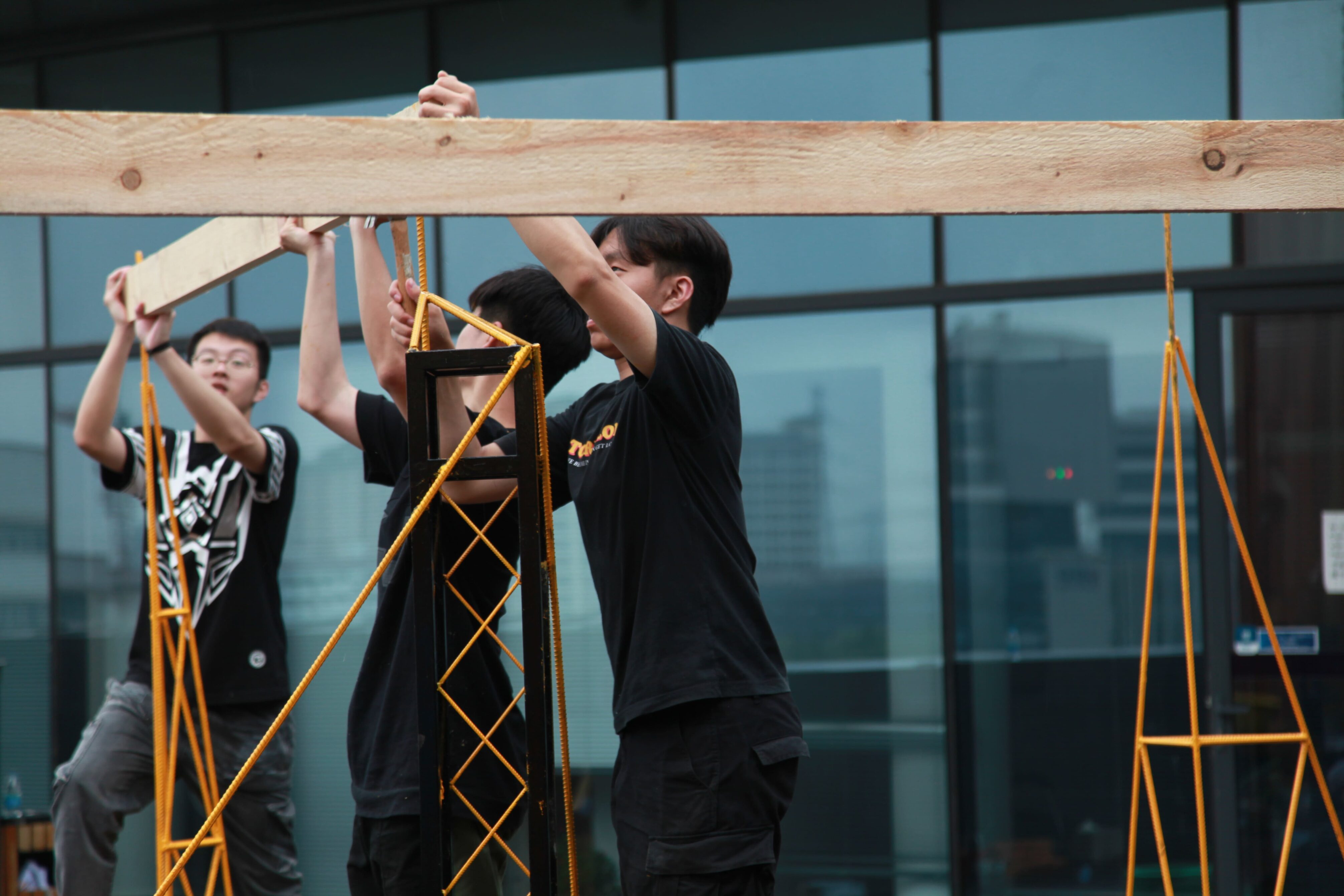
Workshop week with Architecture and Industrial Design students from the Xi’an Jiaotong-Liverpool University in Suzhou, China
Awareness. noun [ U ] uk /əˈweə.nəs/ – us /əˈwer.nəs/
“knowledge that something exists, or understanding of a situation or subject at the present time based on information or experience,
The “Awareness Workshop” is a practical and theoretical exercise focused on fostering environmental consciousness. The premise of this exercise is that when architects and designers are informed about the harm the construction industry is causing to the planet, they are more likely to make ethical, committed, and responsible decisions.
The Awareness Workshop is not about labeling actions as good or bad; it is about empowering individuals with knowledge, giving them the freedom to make informed choices.
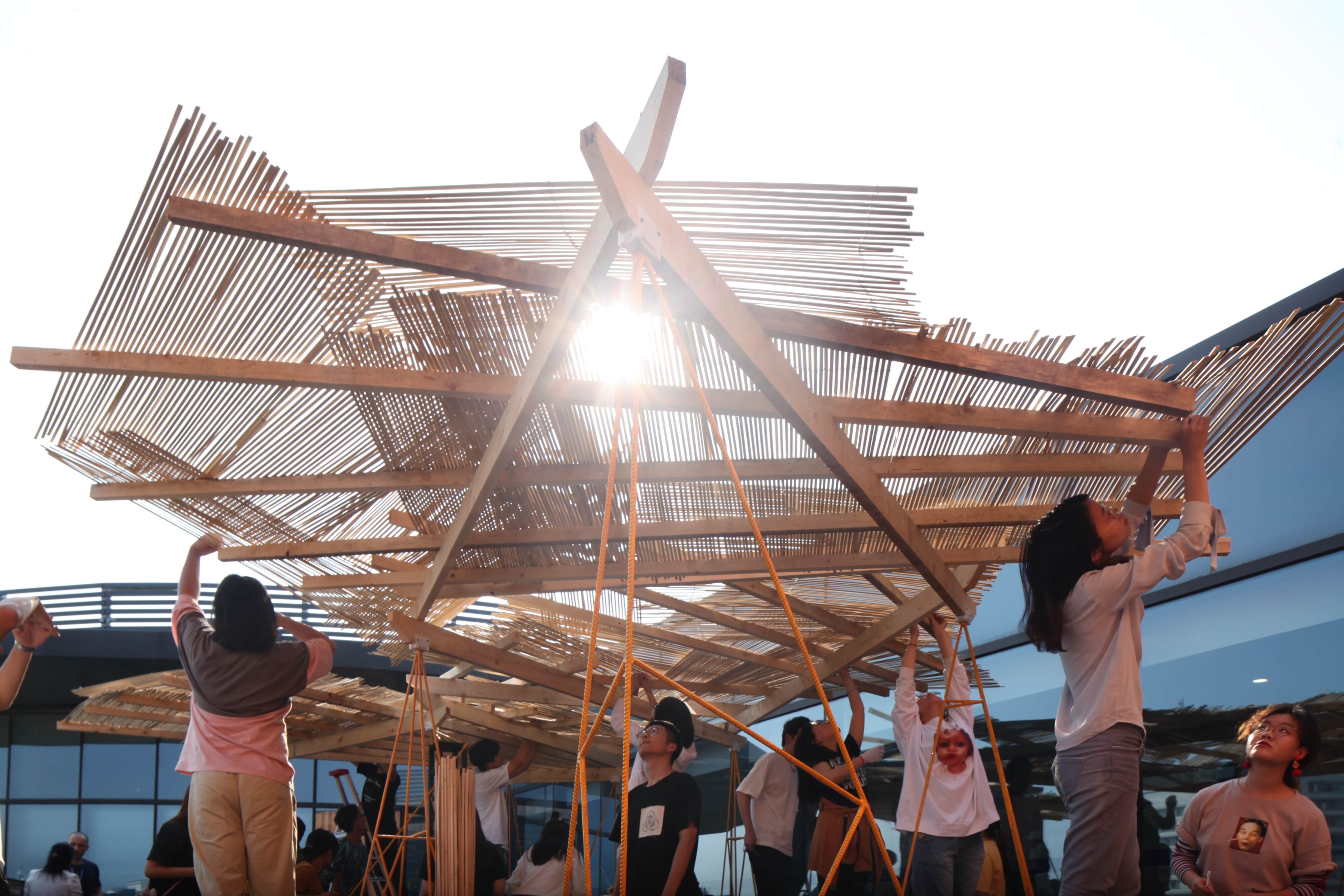
Based on these principles, we proposed the “Awareness Workshop,” where 35 Architecture and Industrial Design students from Xi’an Jiaotong-Liverpool University in Suzhou would collaborate to construct a resting area using scrap materials. The workshop also aimed to foster debate and impart knowledge about environmental issues, equipping students not only with insights valuable for their future careers as architecture and design professionals but also for their everyday lives.
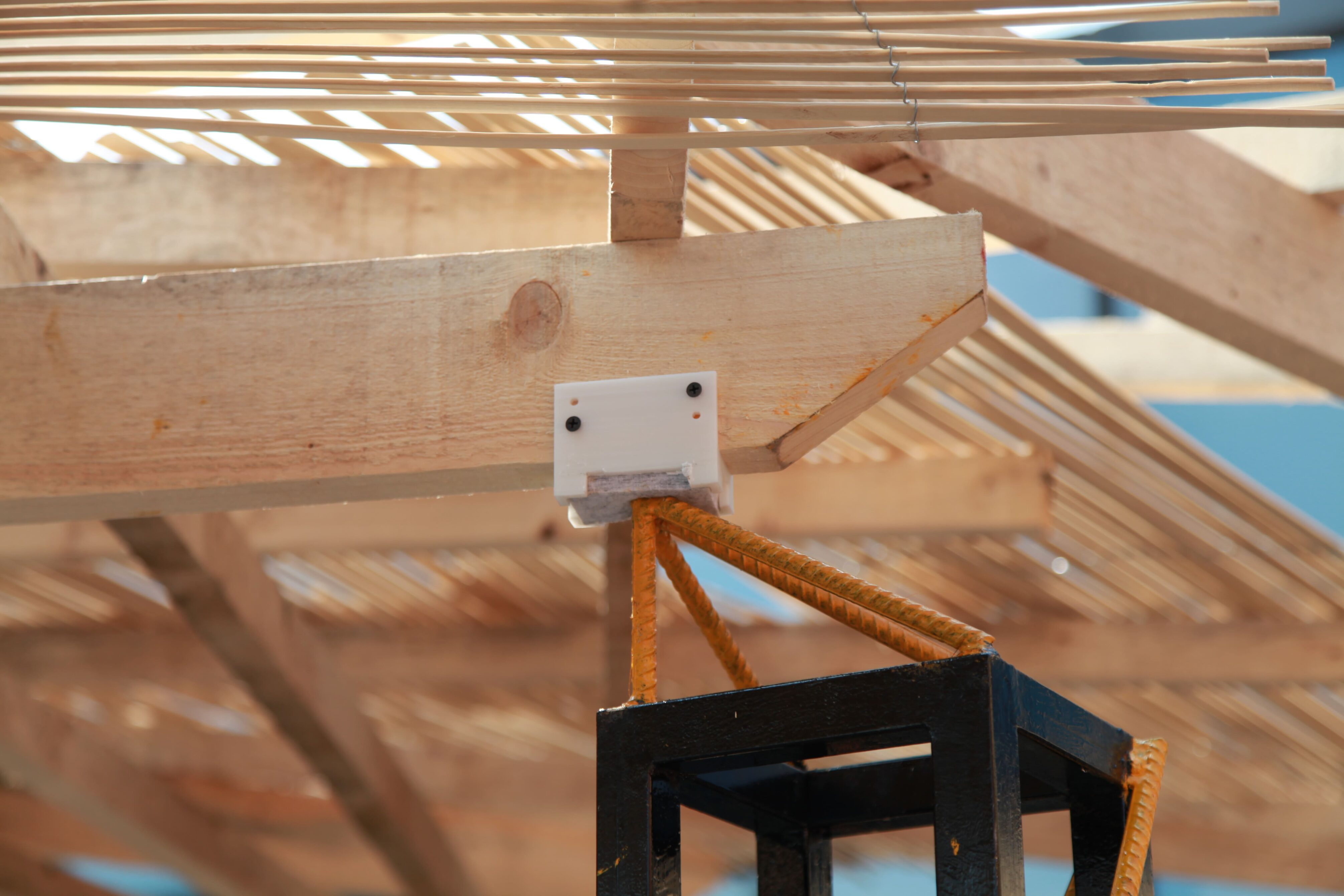
We worked hand in hand, in teams of three or four students, using and reusing discarded, old-stock, and unused elements or equipment from the university. Each team was tasked with designing and constructing their own prototype while considering how it could connect with the others, ensuring that all prototypes ultimately formed a cohesive solution as a whole.
Teams had complete freedom in designing their prototypes; however, they had to adhere to specified maximum dimensions and spatial occupation. Structurally, each prototype needed to include a support base or counterweight, a load-bearing structure capable of supporting a canopy, and provisions to hold plants.
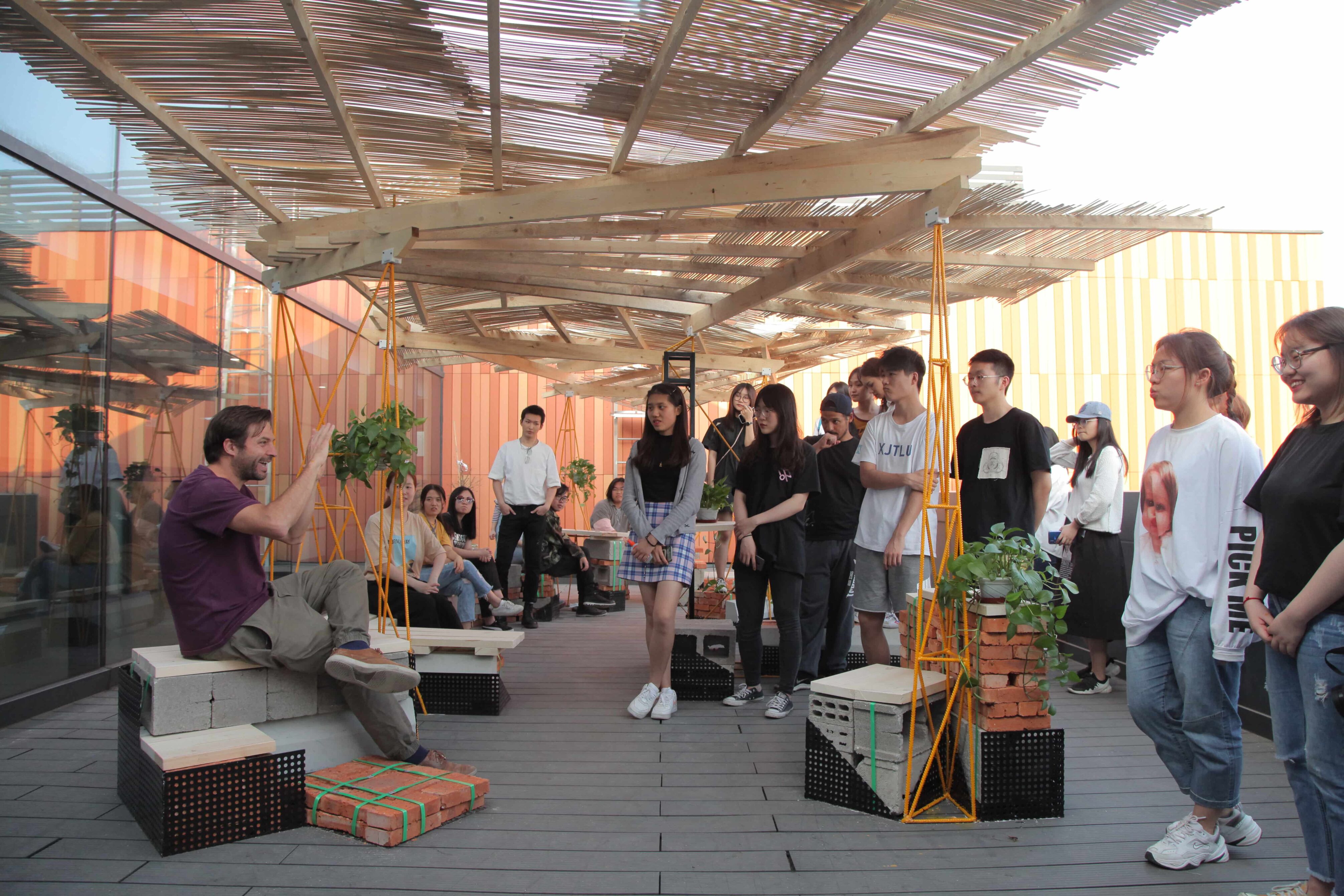
During the environmental consciousness debate in the Awareness Workshop, we discussed key facts about carbon footprint and carbon offset, and reflected on the differences between the commonly used terms: reusing, recycling, and upcycling.
